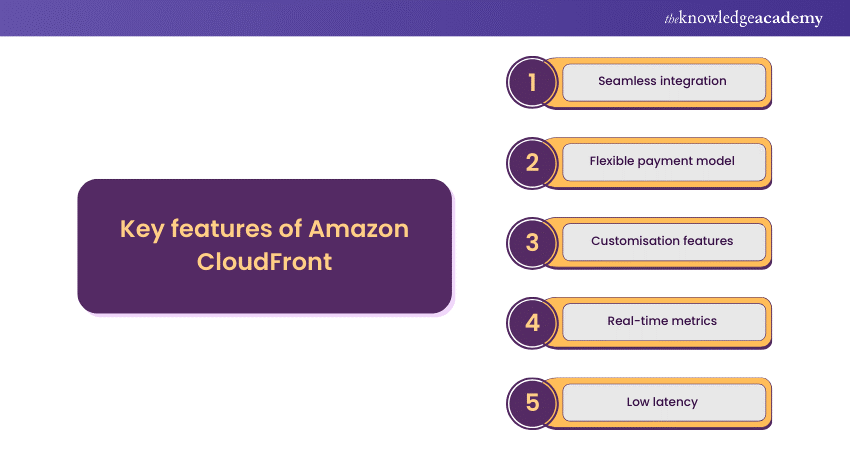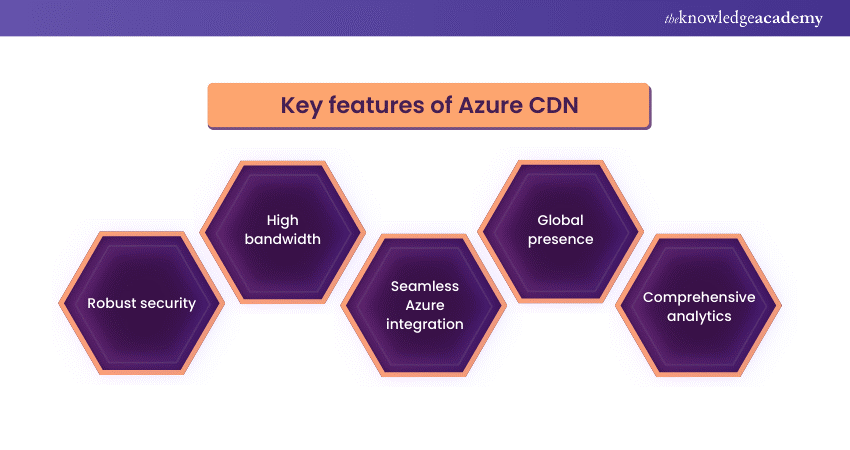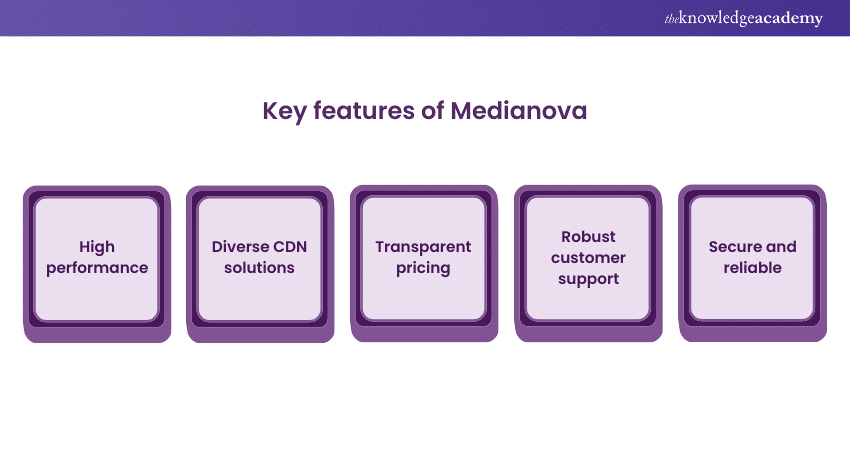We may not have the course you’re looking for. If you enquire or give us a call on 01344203999 and speak to our training experts, we may still be able to help with your training requirements.
We ensure quality, budget-alignment, and timely delivery by our expert instructors.

Cloudflare is a versatile Content Delivery Network (CDN) service that offers fast, secure, and reliable delivery of web content and applications. It also provides features such as DNS, firewall, DDoS protection, and edge computing. However, Cloudflare may not be the best option for everyone, depending on your needs, budget, and preferences. Understanding the different Cloudflare Alternatives can help you find the ideal CDN solution for your specific needs and objectives.
If you are curious to find the best alternative to Cloudflare, then this blog is for you. In this blog, we will explore 15 Cloudflare Alternatives with their pros and cons so you can make an informed decision. Let's dive in!
Table of Contents
1) What is Cloudflare?
2) 15 Best Cloudflare Alternatives
a) Akamai
b) Sucuri
c) Amazon CloudFront
d) Stackpath
e) Fastly
f) Indusface
g) Imperva
h) Azure CDN
i) Google Cloud CDN
j) CDN77
3) Conclusion
What is Cloudflare?
Cloudflare is a CDN service that caches and serves your web content and applications from its global network of edge servers. By doing so, it reduces the latency and bandwidth consumption of your origin server. Moreover, it enhances the security and performance of your website and application. Cloudflare also offers other services such as DNS, firewall, DDoS protection, and edge computing, which enable you to optimise and protect your online presence.
15 Best Cloudflare Alternatives
There are many CDN providers in the market, each with its unique features, pricing, and performance. Here are 15 of the best Cloudflare Alternatives that you can consider for your website or application:
1) Akamai
Akamai is one of the oldest and largest CDN providers in the world, with over 300,000 servers in 130 countries. Akamai offers a comprehensive suite of CDN solutions, including web and mobile performance, media delivery, cloud security, edge computing, and enterprise networking. Let's explore its pros and cons:
Pros:
1) High performance and reliability
2) Advanced security and threat protection
3) Wide range of CDN solutions and features
4) Dedicated support and professional services
Cons:
1) Expensive and complex pricing
2) Less user-friendly and customisable
3) Limited integration with other cloud platforms
2) Sucuri
Sucuri is a CDN service that focuses on web security and malware removal. Sucuri scans and cleans your website from any malicious code and protects it from hackers, bots, and DDoS attacks. Sucuri also offers a CDN feature that caches and delivers your web content from its global network of servers, improving your website speed and performance.
Sucuri is compatible with any web platform, such as WordPress, Joomla, Magento, and Drupal. Here are its pros and cons:
Pros:
1) Affordable and transparent pricing
2) Excellent web security and malware removal
3) Easy to set up and use
4) Compatible with any web platform
Cons:
1) Limited CDN features and functionality
2) No edge computing or media delivery options
3) No custom domain or SSL support
3) Amazon CloudFront
Amazon CloudFront is a CDN service that is part of the Amazon Web Services (AWS) cloud platform. CloudFront integrates with other AWS services, such as S3, EC2, Lambda, and Media Services, to deliver web content and applications with low latency and high transfer speeds.

CloudFront also provides security features, such as SSL, DDoS protection, and WAF, to protect your web content and applications. CloudFront has over 200 edge locations in 90 cities across 47 countries. Let's explore its pros and cons:
Pros:
1) Seamless integration with AWS services
2) Flexible and pay-as-you-go pricing
3) Customisable and programmable CDN features
4) Real-time logging and metrics
Cons:
1) The complex and steep learning curve
2) No malware scanning or removal
3) No free SSL certificate or CDN trial
4) Stackpath
Stackpath is a CDN service that also offers edge computing, web security, and VPN solutions. Stackpath allows you to deploy and run your web content and applications on its edge network, which has over 70 edge locations in 35 countries.
Stackpath also provides security features, such as SSL, DDoS protection, WAF, and firewall, to protect your web content and applications. Stackpath has a simple and transparent pricing model and a user-friendly interface. Here are its pros and cons:
Pros:
1) Affordable and transparent pricing
2) Edge computing and VPN options
3) Simple and user-friendly interface
4) Free SSL certificate and CDN trial
Cons:
1) Limited CDN features and functionality
2) No malware scanning or removal
3) No integration with other cloud platforms
5) Fastly
Fastly is a CDN service that specialises in dynamic and event-driven content delivery. Fastly uses its powerful and distributed network of servers to cache and serve your web content and applications with low latency and high availability. Fastly also offers security features, such as SSL, DDoS protection, and WAF, to protect your web content and applications.
Fastly has a highly configurable and programmable CDN platform, which allows you to customise and control your delivery rules and behaviour. Let's explore its pros and cons:
Pros:
1) High performance and availability
2) Highly configurable and programmable CDN platform
3) Modern protocols and technologies
4) Real-time logging and metrics
Cons:
1) Expensive and complex pricing
2) No malware scanning or removal
3) No edge computing or media delivery options
6) Indusface
Indusface is a CDN service that also offers web application security and DDoS protection. Indusface scans and protects your web content and applications from hackers, bots, and DDoS attacks. Its platform can integrate a web application scanner, web application firewall, DDoS mitigation, CDN, and threat intelligence engine to mitigate threats.
Indusface has over 40 edge locations in 25 countries and provides 24/7 monitoring and support. Indusface is trusted by over 5000 customers in 150 countries. Here are its pros and cons:
Pros:
1) Comprehensive web application security and DDoS protection
2) Fully managed and monitored CDN platform
3) Flexible and pay-as-you-go pricing
4) 24/7 monitoring and support
Cons:
1) Limited CDN features and functionality
2) No edge computing or media delivery options
3) No integration with other cloud platforms
7) Imperva
Imperva is a CDN service that also offers web application security and data security solutions. Imperva protects your web content and applications from cyber attacks like SQL injection, cross-site scripting, DDoS, and ransomware. Imperva has over 300,000 servers in 130 countries and provides real-time visibility and analytics. Let's explore its pros and cons:
Pros:
1) Advanced web application security and data security solutions
2) High performance and reliability
3) Real-time visibility and analytics
4) Dedicated support and professional services
Cons:
1) Expensive and complex pricing
2) Less user-friendly and customisable
3) Limited integration with other cloud platforms
Discover the foundation of networking with our Introduction to Networking Training – Sign up today!
8) Azure CDN
Azure CDN is a CDN service that is part of the Microsoft Azure cloud platform. Azure CDN integrates with other Azure services, such as Storage, Web Apps, Cloud Services, and Media Services, to deliver web content and applications with low latency and high bandwidth. Azure CDN also provides security features, such as SSL, DDoS protection, and WAF, to protect your web content and applications. Here are its pros and cons:

Pros:
1) Seamless integration with Azure services
2) Flexible and pay-as-you-go pricing
3) Customisable and programmable CDN features
4) Real-time logging and metrics
Cons:
1) The complex and steep learning curve
2) No malware scanning or removal
3) No free SSL certificate or CDN trial
9) Google Cloud CDN
Google Cloud CDN is a CDN service that is part of the Google Cloud Platform. Google Cloud CDN integrates with other Google Cloud services, such as Compute Engine, Cloud Storage, and Media Services, to deliver web content and applications with low latency and high transfer speeds.
Google Cloud CDN also provides security features, such as SSL, DDoS protection, and WAF, to safeguard your web content and applications. Leveraging Google’s global network of servers, which includes over 200 edge locations in 90 countries, it ensures fast and secure content delivery. When comparing its performance with other services like Cloudflare vs Google DNS, it's essential to analyze its strengths and weaknesses. Let's explore its pros and cons:
Pros:
1) Seamless integration with Google Cloud services
2) Flexible and pay-as-you-go pricing
3) Customisable and programmable CDN features
4) Real-time logging and metrics
Cons:
1) The complex and steep learning curve
2) No malware scanning or removal
3) No free SSL certificate or CDN trial
10) CDN77
CDN77 is a CDN service that offers fast, dependable, and secure delivery of web content and applications. CDN77 supports various types of content, such as static, dynamic, live streaming, video on demand, and large file downloads. CDN77 also provides security features, such as SSL, DDoS protection, and WAF, to protect your web content and applications. Here are its pros and cons:
Pros:
1) Affordable and transparent pricing
2) Support for various types of content
3) 24/7 support and transparent pricing
4) Free SSL certificate and CDN trial
Cons:
1) Limited CDN features and functionality
2) No malware scanning or removal
3) No edge computing or media delivery options
11) Tata Communications CDN
Tata Communications CDN is a CDN service that is part of the Tata Communications global network. Tata Communications CDN delivers web content and applications with low latency and high availability using its network of over 400,000 servers in 240 countries.
Tata Communications CDN also provides security features, such as SSL, DDoS protection, and WAF, to protect your web content and applications. Let's explore its pros and cons:
Pros:
1) High performance and availability
2) Seamless integration with Tata Communications services
3) Advanced security and threat protection
4) Dedicated support and professional services
Cons:
1) Expensive and complex pricing
2) Less user-friendly and customisable
3) Limited integration with other cloud platforms
12) Netlify
Netlify is a CDN service that also offers edge computing, web security, and VPN solutions. Netlify allows you to deploy and run your web content and applications on its edge network, which has over 70 edge locations in 35 countries. Netlify also provides security features, such as SSL, DDoS protection, WAF, and firewall, to protect your web content and applications.
Netlify has a simple and transparent pricing model and a user-friendly interface. Netlify is compatible with any web platform, such as WordPress, Joomla, Magento, and Drupal2. Here are its pros and cons:
Pros:
1) Affordable and transparent pricing
2) Edge computing and VPN options
3) Simple and user-friendly interface
4) Free SSL certificate and CDN trial
Cons:
1) Limited CDN features and functionality
2) No malware scanning or removal
3) No integration with other cloud platforms
13) Medianova
Medianova is a CDN service that is one of the fastest HTTPS-secure CDNs in Europe and the Middle East. It is based on CDNPerf1 Medianova and offers a range of CDN solutions, such as web and mobile performance, media delivery, cloud security, edge computing, and enterprise networking.
Medianova also provides security features, such as SSL, DDoS protection, and WAF, to protect your web content and applications. Medianova has over 50 edge locations in 21 countries and provides 24/7 support and transparent pricing. Let's explore its pros and cons:

Pros:
1) High performance and reliability
2) Wide range of CDN solutions and features
3) Affordable and transparent pricing
4) 24/7 support
Cons:
1) Limited CDN features and functionality
2) No malware scanning or removal
3) No integration with other cloud platforms
14) AppTrana
AppTrana is a fully managed application security tool that detects, protects, and monitors your web content and applications. AppTrana also improves your website performance using its distributed global edge locations. It has flexible and pay-as-you-go pricing and provides 24/7 monitoring and support. Here are its pros and cons:
Pros:
1) Comprehensive web application security and DDoS protection
2) Fully managed and monitored CDN platform
3) Flexible and pay-as-you-go pricing
4) 24/7 monitoring and support
Cons:
1) Limited CDN features and functionality
2) No edge computing or media delivery options
3) No integration with other cloud platforms
Build a strong IT foundation with our IT Fundamentals Training – Sign up now!
15) Radware
Radware is considered a global leader in Cyber Security and application delivery solutions for cloud, physical, and software-defined data centres. Radware offers a complete application security suite, including web application firewall, bot management, API protection, web DDoS protection, and client-side protection.
Radware also offers advanced multi-cloud application delivery as well as management and monitoring tools. It’s load balancing solutions are similar to Cloudflare’s Load Balancing. Radware has over 300,000 servers in 130 countries and provides real-time visibility and analytics.
Pros:
1) Advanced Cyber Security and application delivery solutions
2) High performance and availability
3) Real-time visibility and analytics
4) Dedicated support and professional services
Cons:
1) Expensive and complex pricing
2) Less user-friendly and customisable
3) Limited integration with other cloud platforms
Conclusion
We hope you read and understand everything about Cloudflare Alternatives. Choosing the best alternative to Cloudflare depends on your specific needs. Consider factors like performance, security, scalability, and integration with your existing infrastructure. While Cloudflare remains a strong choice, these alternatives offer unique advantages that may better align with your website's requirements.
Elevate your online defence with our Cloudflare Training – Sign up today!
Frequently Asked Questions
What is the best alternative for Cloudflare?

Mindfulness involves a broader awareness of the present moment, embracing thoughts and sensations without a specific focal point. In contrast, Meditation is a deliberate mental exercise, often centred on a specific object or breath, aiming for focused concentration and inner tranquillity.
What is Cloudflare's alternate DNS?

Yes, both practices are flexible. Mindfulness can be integrated informally into daily life, while Meditation usually involves dedicated sessions. Engaging in one doesn't require the other, but combining them enhances overall well-being.
Is Fastly better than Cloudflare?

While both contribute to well-being, Meditation may lead to altered states of consciousness and deep concentration, while Mindfulness emphasises continuous awareness in everyday moments. The benefits overlap but arise through distinct pathways.
What are the other resources and offers provided by The Knowledge Academy?

The Knowledge Academy takes global learning to new heights, offering over 3,000 online courses across 490+ locations in 190+ countries. This expansive reach ensures accessibility and convenience for learners worldwide.
Alongside our diverse Online Course Catalogue, encompassing 19 major categories, we go the extra mile by providing a plethora of free educational Online Resources like News updates, Blogs, videos, webinars, and interview questions. Tailoring learning experiences further, professionals can maximise value with customisable Course Bundles of TKA.
What is the Knowledge Pass, and how does it work?

The Knowledge Academy’s Knowledge Pass, a prepaid voucher, adds another layer of flexibility, allowing course bookings over a 12-month period. Join us on a journey where education knows no bounds.
What are related IT Support and Solution Courses and blogs provided by The Knowledge Academy?

The Knowledge Academy offers various Health Lifestyle training, including Life Coach Masterclass, Yoga Masterclass and Nutrition Course. These courses cater to different skill levels, providing comprehensive insights into Project Management methodologies.
Our Health & Safety blogs cover a range of topics related to Meditation, offering valuable resources, best practices, and industry insights. Whether you are a beginner or looking to advance your Health & Safety skills, The Knowledge Academy's diverse courses and informative blogs have you covered.
What is The Knowledge Academy's FlexiPass, and how can clients access this flexible training option?

The Knowledge Academy’s FlexiPass is a pre-paid training voucher that is built specifically for clients and their dynamic needs. It provides access to a wide range of courses at a pre-determined price, with robust safety measures. FlexiPass gives clients the added benefit of upskilling on a budget that best fits them.
Upcoming IT Infrastructure & Networking Resources Batches & Dates
Date
 CloudFlare Training
CloudFlare Training
Fri 23rd May 2025
Fri 25th Jul 2025
Fri 26th Sep 2025
Fri 28th Nov 2025






 Top Rated Course
Top Rated Course



 If you wish to make any changes to your course, please
If you wish to make any changes to your course, please


